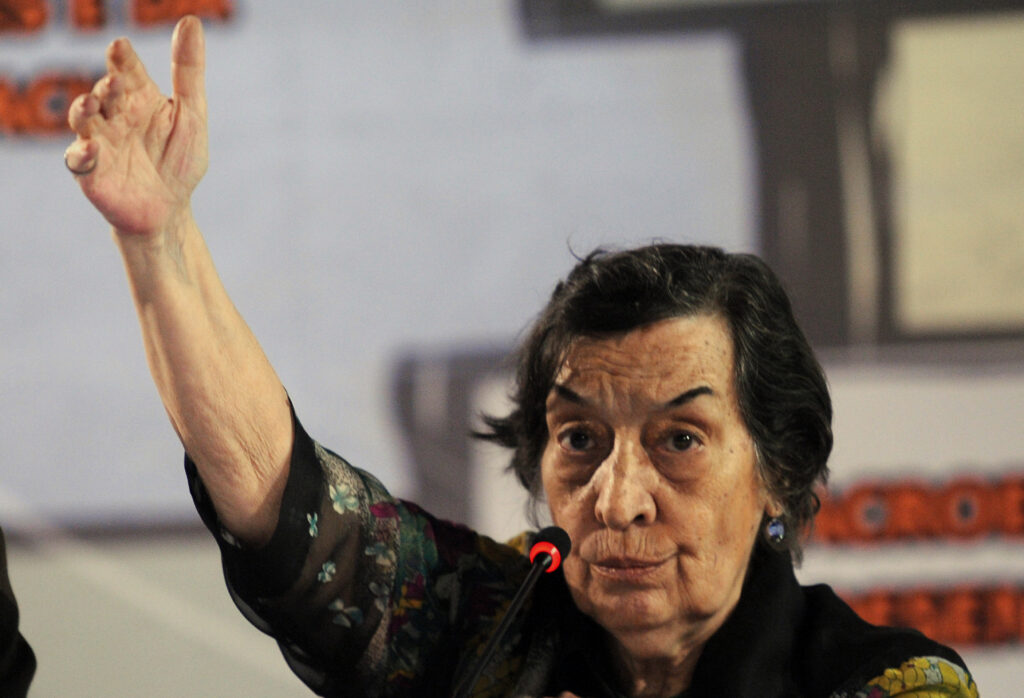Maria Conceicao

Credit: Antonio Cruz
Licence: Creative Commons Attribution 3.0 Brazil
26 November 2010
| Giver: | Individual |
|---|---|
| Receiver: | Registered Organization |
| Gift: | Money, Time, Voice/Advocacy |
| Approach: | Philanthropy |
| Issues: | 1. No Poverty, 4. Quality Education |
| Included in: | Private Foundations, Social Entrepeneurship |
Maria Conceicao is the Portuguese founder of the Maria Cristina Foundation (MCF), an NGO that funds educational opportunities for children living in the slums of Dhaka, Bangladesh. Established in 2005, the organization helps students enroll in private schools while providing financial support to their families. Conceicao has developed an imaginative approach to fundraising, undertaking extreme physical challenges to attract attention for her cause. This combination of dedication and creativity has made MCF a powerful vehicle for change.
Conceicao named her foundation after her adoptive mother, who brought Conceicao in when her birth mother became ill. An Angolan immigrant to Portugal, Maria Cristina worked as a maid to support her seven children. Although she died when Conceicao was only nine years old, her model of self-sacrifice left an indelible mark.
Conceicao worked as a flight attendant for Emirates Airlines before embarking on her philanthropic career. The turning point came during an overnight stay in Dhaka. The sight of so many children living in material poverty inspired Conceicao to make a difference. “I had a vision and I believed in that vision, that of seeing these children from the slums graduating, one day, in high schools and universities all over the world,” she told Vogue in 2021.
Conceicao left her job and sold off most of her possessions in order to launch MCF. Early donations primarily paid for food and other basic necessities. As the organization expanded, it began paying for transportation to and from school, uniforms and books.
When fundraising faltered during the Great Recession of 2007-2009, Conceicao devised a new way to appeal to donors. After intensive training she embarked on an expedition to the North Pole, using the two-week endurance test to raise awareness about the foundation’s work. MCF quickly saw an increase in donations.
Conceicao continued to come up with new ways to publicize her mission. She became an endurance runner, setting a Guinness World Record as the fastest woman to complete a marathon on all seven continents. In 2013, she became the first Portuguese woman to scale Mount Everest. While her 2016 attempt to swim the English Channel fell short, the media attention kept MCF in the headlines.
With the support of corporate and private sponsors, the Maria Cristina Foundation has helped more than 600 children attend school in Dhaka. The organization has also funded scholarships for students to attend European universities, in addition to establishing a work internship program in Dubai. Two MCF students went on to pursue master’s degrees in Australia and the U.S.
Even with these successes, generating donations remains a constant challenge. “I have to keep reinventing myself, starting over, if I want to keep people interested in my story, in the cause,” Conceicao told Vogue. As always, she finds inspiration in the resilience of her students. “Believe me,” she said, “climbing Everest, breaking world records, is a piece of cake compared to the day-to-day life of a project in Bangladesh.”
Contributors: Maha Tazi, Stephen Meyer
| Source type | Full citation | Link (DOI or URL) |
|---|---|---|
| Website |
Andrade, Sara. “Once Upon Another Time”, Vogue Portugal, 2021. |
https://bit.ly/3gMEJuQ |
| Website |
Naher, Kamrun. “A Portuguese Woman’s Fight to Provide Education to Dhaka’s Slum Children”, The Business Standard, 2021. |
https://bit.ly/3TXv5Uo |
| Website |
Trentworth, Courtney. “Maria Conceicao: on top of the world”, Arabian Business, 2015. |
https://bit.ly/3zocj0z |
| Website |
“Dubai-based Maria Conceicao set to swim English Channel”, Sport 360, 2016. |
https://bit.ly/3N8QmbE |